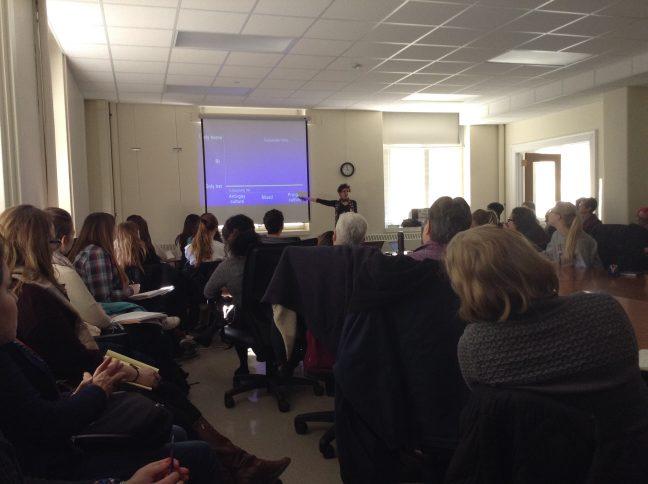University of Utah professor Lisa Diamond has found trouble with the idea of being “born this way” when discussing homosexuality.
In a Thursday lecture, Diamond discussed the problematic approach to the idea, along with the topics of sexual orientation and sexual fluidity to dozens of students and faculty at the University of Wisconsin.
Diamond kicked off the lecture by breaking down the immutability approach to sexuality, which defines sexuality as being fixed with no choice. She also discussed scientific knowledge of why people can be homosexual and how it relates to the legality of sexual orientation and human rights.
“There is no single cause for sexual orientation,” Diamond said. “There are definitely genetic influences, but they are not deterministic. There is a lot of evidence for fluidity and change in people’s experiences of same-sex attraction.”
Change in sexuality over time and choice of sexuality, Diamond said, are two elements which have an influence on a person’s sexuality.
On the topic of change, Diamond presented studies following the sexual orientation in adolescents over different ages to track the stability of sexual orientation and attraction. The studies Diamond brought up found sexual attraction fluctuated and isn’t stable.
To help the audience better understand, she presented three main factors ─ genotype, phenotype and environment ─ that impact expression of change in sexual orientation.
Genotype is the genetic predisposition for sexual attraction to someone of the same sex or opposite sex, Diamond said.
She gave an example of a person with a homosexual genotype in an anti-gay environment, and how because of the environment, the person won’t feel safe enough to express oneself as a homosexual.
“We never observe the genotype — we only observe the interactions between the genotype and the environment,” Diamond said. “So the same genotype expresses itself differently in different environments.”
Diamond also mentioned there is concern among conservatives regarding the correlation between openly expressing homosexuality and the spread of it.
According to a survey conducted on openly identifying gay and bisexual individuals, Diamond said respondents indicated sexuality is a choice, and that it is not fixed. Since it is a choice, she said it is wrong for governments to roll back civil rights on the basis of same-sex sexuality.
When it comes to certain governments affirming these rights, she specifically referred to California Judge Vaughn Walker’s stance on same-sex individuals, which stated, “California has no interest in reducing the number of gays and lesbians in California because it’s not related to an individual’s ability to contribute to society and perform in the work place.”
The immutability argument in this case, Diamond said, is then unnecessary because whether sexuality is a choice or if it is fixed, it has no weight on how it relates to human rights.
“If the state has no compelling reason to reduce the prevalence of same-sex sexuality, then it just doesn’t matter where it comes from,” Diamond said.


